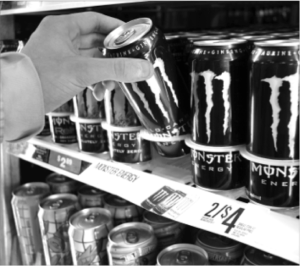Rebecca Martelotti
Staff Writer

“The ban should have been passed,” said Kathy Isoldi, LIU professor and director of Nutrition, after Manhattan Supreme Court Judge Milton Tingling struck down Mayor Michael Bloomberg’s sugary drink portioncontrol legislation.
The banned drinks included soda, energy drinks and pre sweetened ice teas. The proposed restrictions would not apply to alcoholic or dairy-based beverages, diet sodas, fruit juices, and sugary drinks sold at grocery and convenience stores.
While sugarlovers rejoiced, some health advocates were not so happy. “This ban doesn’t impede on anyone’s rights and everyone should be invested in trying to create an environment that promotes health and helps people limit their intake of sugary beverages,” said Isoldi.
Isoldi has been in the field of nutrition for 32 years. She is a registered dietitian and was affiliated with New York Presbyterian Hospital. Her specialty is childhood obesity and she spent 22 years counseling obese individuals, children and adults, and preventing and treating the disease at an elementary school in East Harlem.
According to an LIU Post Nutritionist, Melissa Levine, people can enjoy sugar sweetened beverages from time to time in moderation. However, they should be aware that these drinks provide nothing more than empty calories with no nutritional
value. “Something to consider: A 20ounce bottle of regular soda
has about 16 teaspoons of sugar. Would you eat 16 teaspoons of sugar?” said Levine.
According to Isoldi, Mayor Bloomberg’s proposed ban would have helped to filter that. Instead of drinking the whole 32ounce soda, a consumer would have no choice but to only purchase the 16ounce. However, the ban did not factor in the loophole that consumers could buy multiple 16ounce drinks.
According to Isoldi, the economy has a role in the unhealthy choice. Many of the biggulp soda options are not much more expensive. A 32ounce soda costs roughly ten cents more than a 16ounce soda. “People could feel that they shouldn’t turn down a good bargain,” she added. “If you went shopping and purchased a beautiful outfit and someone said that for a dollar more you could buy a whole new outfit, most people would say ‘yes.’”
According to The American Heart Association, approximately 180,000 deaths worldwide are linked to sugary beverages every year.
According to Isoldi, “People are driven by different thingsand not necessarily to be healthy. Behavior is hard to change because we tend to stick to the status quo and the behavior is you get more [sugary drinks] for much less. I think we should try the ban in the specific locations [proposed by Bloomberg] to see if it changes behavior.”
Some students believe consumers should have the right to buy whatever size drink they want. “If someone wants to drinka biggulp soda, they should be allowed to,” said Alyssa Yannuzzi, a sophomore Public Relations major. “People are aware of the health risks and the choice is in their hands. No one should have to control the soda intake of people, it’s silly.”
“I believe [the ban] is a waste of time. People are going to eat and drink what they want to,” said Rafe Tangorra, a sophomore Broadcasting major. “Since when did the mayor decide our diet?”
Others argue that this ban could have possibly helped fight obesity because it would take away the option of choosing the larger
sugary drink and promote an environment that supports limits on unhealthy dietary options. In a single 12ounce can of Coke there are 39 grams of sugar and 140 calories.
At a press conference after the court’s denial of the ban, Mayor Bloomberg, stated that he would appeal the ruling.
“The plan wasn’t comprehensive enough, but it’s worth continuing to find the right way to institute this,” said Isoldi. “This is a public health issue that we all pay for; we are already paying for it with death, losing worker hours and diseases. Public health is an issue for the public.”



Be First to Comment